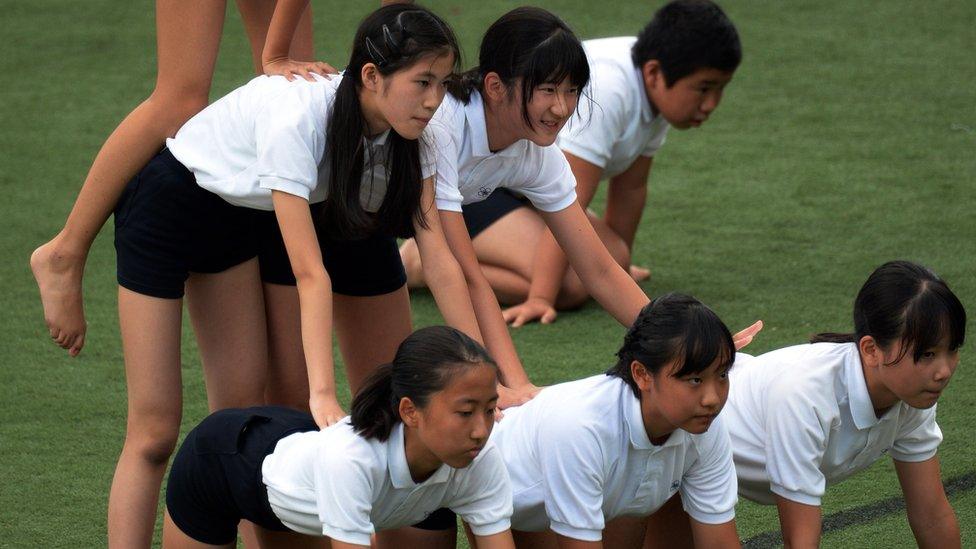A scandal over schools, land and nationalism in Japan
- Published
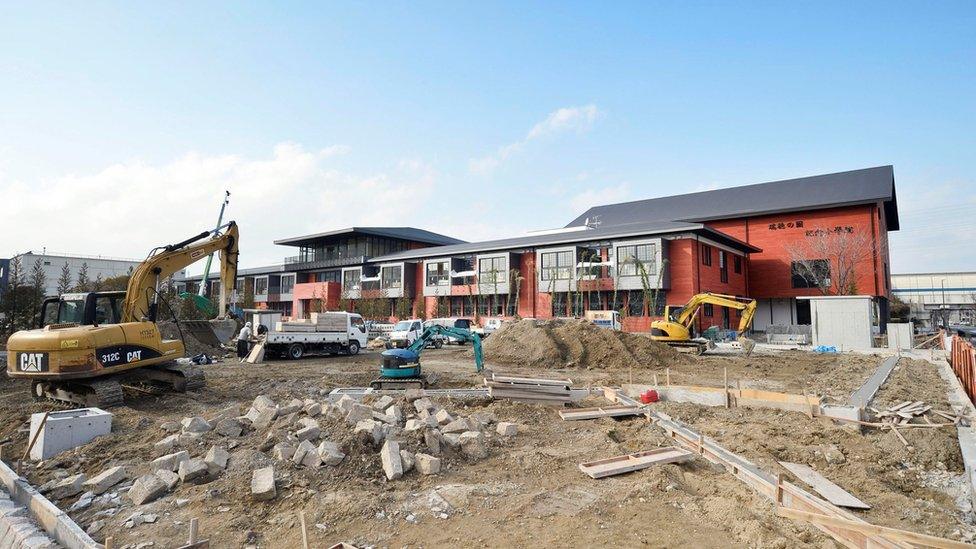
Questions are being asked both about the land price and the type of school to be built on it
Prime ministers usually like to be linked to new schools, but Japan's Shinzo Abe can't get far enough from one that's mired in a scandal about nationalism, toddlers and land deals that has seen his approval ratings tumble and raised questions over his wife's role.
Where did this all begin?
It begins on a piece of derelict land close to the airport, in the Toyonaka area of Osaka.
In February, local media reported that a nationalist educational body called Moritomo Gakuen bought this land for a new primary school from the transport ministry at a suspiciously low price.
It certainly got a very good deal, paying less than a sixth of the land's value. But the finance ministry says this was because after buying a 10-year lease with a commitment to purchase, industrial waste was found on the site and the estimated clean-up costs were deducted from the sale price.
Opposition lawmakers and some media commentators allege that the government - or even elements close to the prime minister - may have pressured officials to award the school a disproportionately large discount.
Mr Abe has strenuously denied this and even said he would resign if anybody could prove he had been involved.
Why is the school so controversial?
Many schools in Japan are government-run and some are operated by private organisations just like Moritomo Gakuen - but this one is known for its unusually patriotic educational style based on Shintoism, the animist religion of Japan.
And the credentials of Moritomo Gakuen are now under scrutiny.
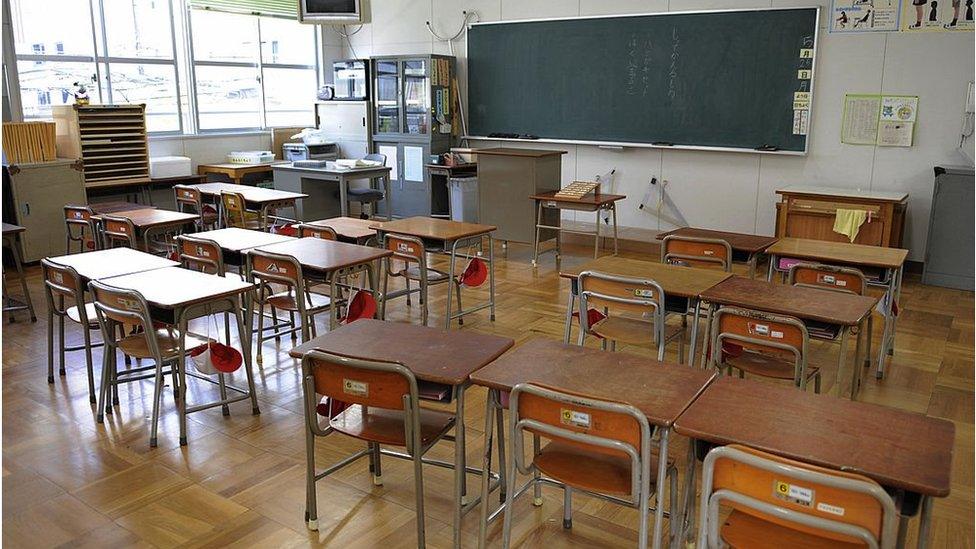
Most Japanese schools (like this unrelated one in Osaka) are apolitical
The group already runs the Tsukamoto kindergarten in Osaka on nationalistic principles, which is a rare and controversial move in post-war Japan.
Reports have surface about the way the kindergarten drills its young charges in pre-war practices long abandoned by the rest of Japan's school system.
They bow to images of the emperor, stamp their feet to military songs and recite the 1890's Imperial Rescript on Education, commanding them to filial piety, brotherhood and self-sacrifice.
"Should emergencies arise, offer yourselves courageously to the state," the tiny foot-soldiers of patriotism call out in school assemblies.
The kindergarten is also being investigated for alleged hate-speech after sending notes to parents, external using an abusive term for Chinese people and accusing Korean and Chinese residents (many of them in Japan for generations) of having "wicked ideas". Japanese people with the "spirits" of foreigners were also to blame for Japan's ills, it wrote in one letter.
Why is Mr Abe's name even coming up?
The new school that Moritomo Gakuen was going to build on the controversial land was called the Abe Shinzo Memorial Primary School.
Mr Abe's wife, Akie Abe, was listed as the "honorary principal" on the website of the school that was to be built on the land.
Mr Abe says he protested when he found out that the school had been fundraising in his name. Mrs Abe says she only reluctantly accepted this role after she had been publically named without consultation.
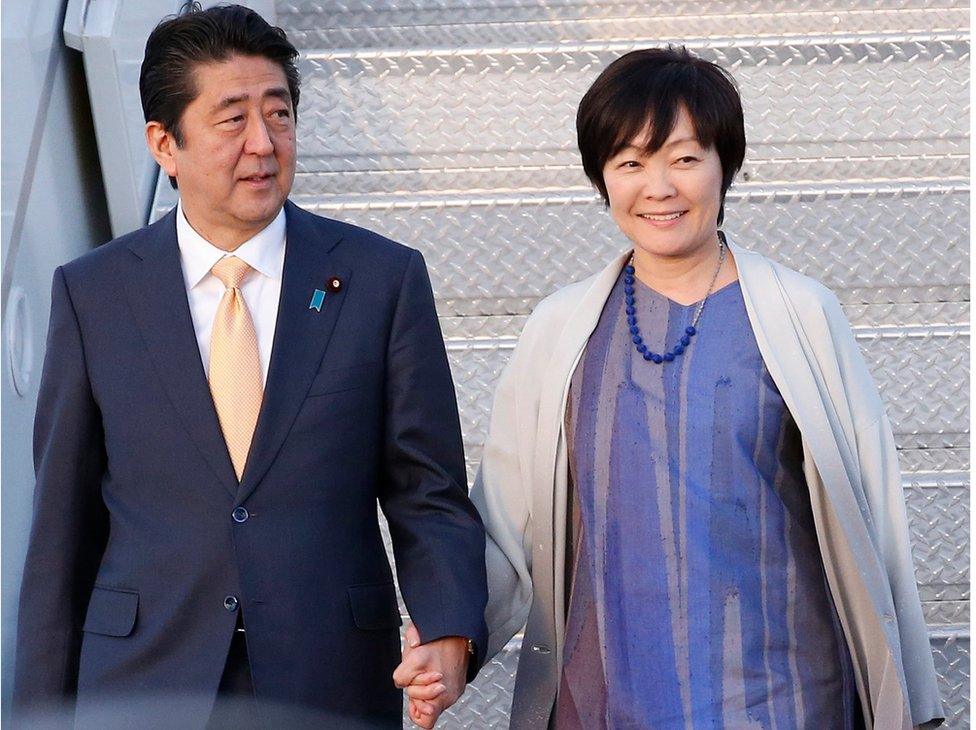
There are demands Mr Abe and his wife testify in parliament about the scandal
The prime minister has also denied detailed knowledge of the school's nationalist curriculum.
"Of course I don't want the kids to root for me like that, and I don't think it's an appropriate thing for them to say," he said in response to questions in Japan's parliament.
Either way, the school has now withdrawn its planning application and officials in Osaka say they have more questions about the deal.
But there is a further link.
Yasunori Kagoike, former principal of the kindergarten and head of Moritomo Gakuen, is a governing board member of the Osaka branch of Nippon Kaigi, a nationalist lobby group that extols Japanese pre-war values and opposes its pacifist constitution.
Mr Abe and his cabinet also have close links to the Nippon Kaigi, which has also criticised Mr Kagoike in this matter. Lawmakers are calling for Mr Kagoike to appear in parliament for questioning.
So how is this being seen in Japan?
Government finance scandals not uncommon, but stories of toddlers being marched to martial music have shocked many people.
There is a fierce debate in Japan over the extent to which revisionist textbooks and teaching should be part of curricula.
In this instance, the bald racism of the letters to kindergarten parents combined with a murky land deal runs the risk of seriously undermining Mr Abe's reputation.
Mr Abe's poll numbers continue to slide, with Kyodo news agency reporting a six-point drop to 55.7% in the last month, and almost three-quarters of respondents calling for Mr Kagoike to answer questions in parliament.
Another online survey suggested support had slipped to 36.1% from 63.7% in just a week.
- Published14 February 2017
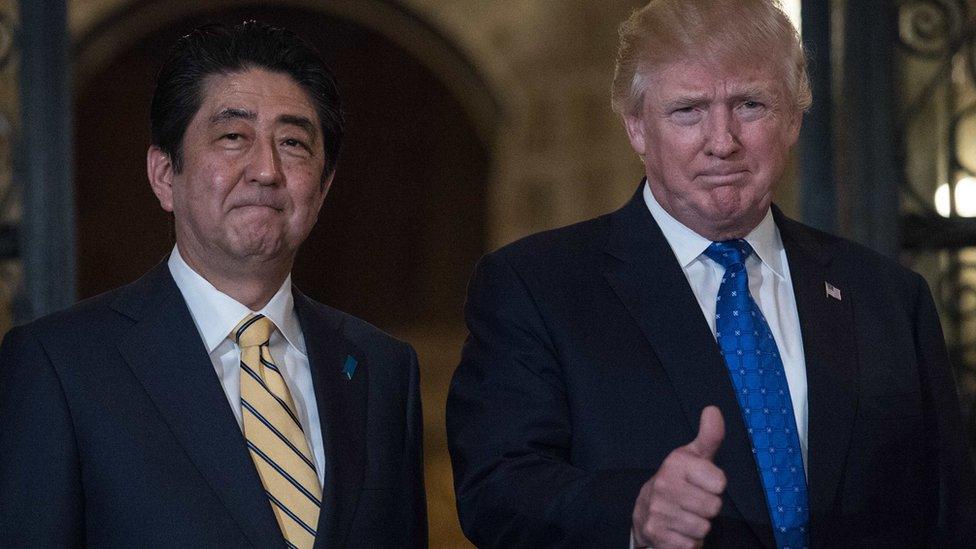
- Published23 March 2015
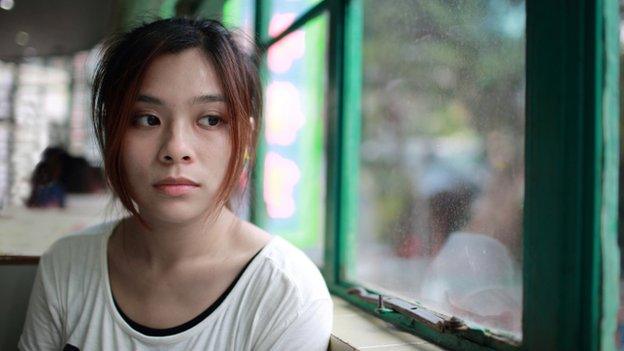
- Published23 October 2017
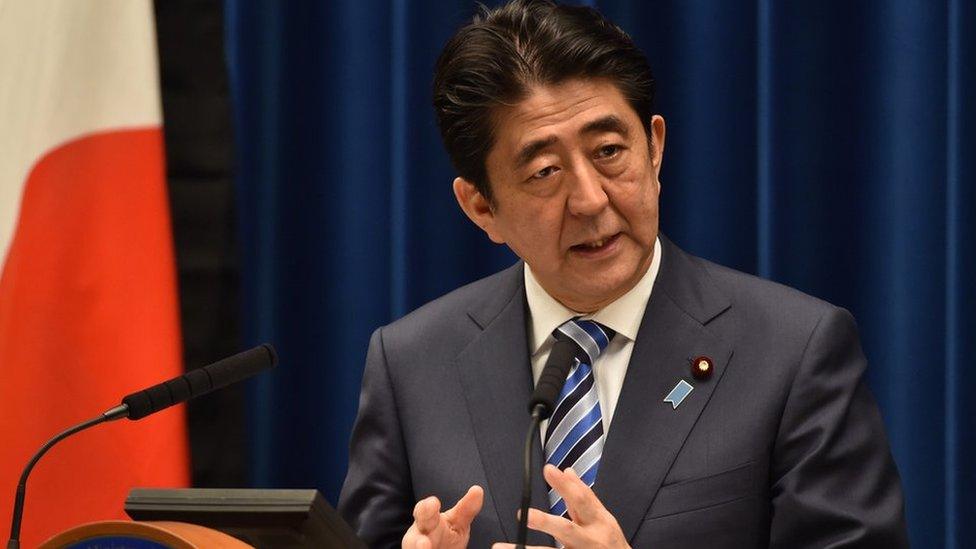
- Published28 January 2014
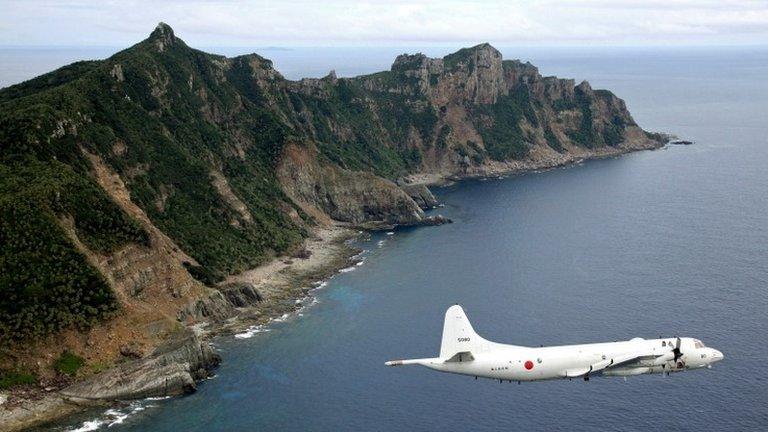
- Published14 March 2013
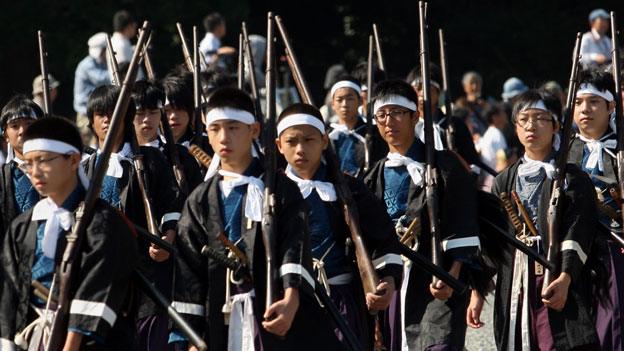
- Published9 February 2016
